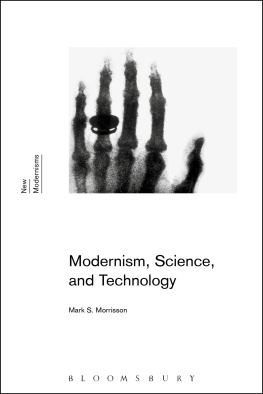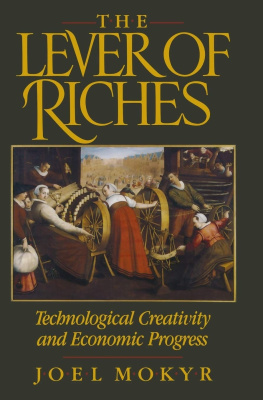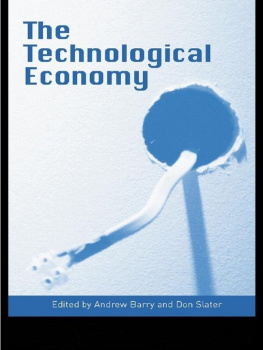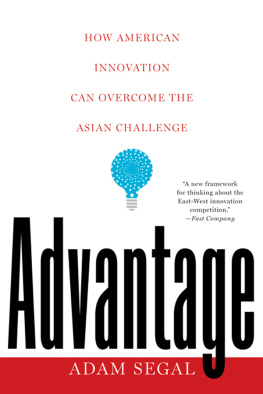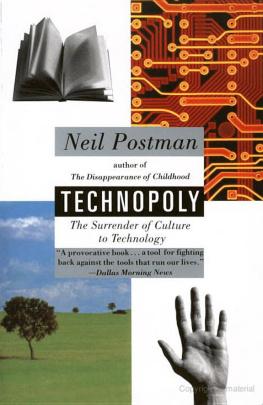Technical Fouls
Interventions: Theory and Contemporary Politics
Stephen Eric Bronner, Series Editor
Technical Fouls:
Democratic Dilemmas and Technological Change,
John Kurt Jacobsen
Freedomways Reader:
Prophets in Their Own Country,
edited by Esther Cooper Jackson and Constance Pohl
Notes from the Minefield,
Irene Gendzier
Business and the State in International Relations,
edited by Ronald W. Cox
Television and the Crisis of Democracy,
Douglas Kellner
Technical Fouls
Democratic Dilemmas and Technological Change
John Kurt Jacobsen
University of Chicago
Interventions: Theory and Contemporary Politics
First published 2000 by Westview Press
Published 2018 by Routledge
711 Third Avenue, New York, NY 10017, USA
2 Park Square, Milton Park, Abingdon, Oxon OX14 4RN
Routledge is an imprint of the Taylor & Francis Group, an informa business
Copyright 2000 Taylor & Francis
All rights reserved. No part of this book may be reprinted or reproduced or utilised in any form or by any electronic, mechanical, or other means, now known or hereafter invented, including photocopying and recording, or in any information storage or retrieval system, without permission in writing from the publishers.
Notice:
Product or corporate names may be trademarks or registered trademarks, and are used only for identification and explanation without intent to infringe.
Library of Congress Cataloging-in-Publication Data
Jakobsen, John Kurt, 1949
Technical fouls : democratic dilemmas and technological change / John Kurt Jacobsen.
p. cm. (Interventions: theory and contemporary politics)
Includes bibliographical references and index.
ISBN 0-8133-1999-4
1. Technology and state. 2. TechnologySocial aspects. 3. Democracy. I. Title. II. Series.
T49.5. J33 2000
303.48'3dc21
00-029619
ISBN 13: 978-0-8133-1999-5 (pbk)
In fond memory of my uncle, Edward P. Klark,
the only left-of-center police officer
I suppose I will ever know
I would like to thank Charles Lipson and Duncan Snidal of the University of Chicago's Program on International Politics, Economics, and Security (PIPES), from whose core concerns this project seemingly departs, but not really all that much. The analytical scope of the topics treated at PIPES is, fortunately for me, quite breathtaking. Through graduate school Lloyd Rudolph humored, guided, and grounded my interest in technological change. For useful comments on all or parts of the manuscript I am indebted to series editor Stephen Bronner, David Edgerton, and three anonymous referees. The London School of Economics made its fine facilities available to me over several summers while I was there as an academic visitor. appeared in the British journal Imprints.
I also am grateful for various reasons to Alba Alexander, Helmuth Berking, Glenn Fong, John Freeman, Roger Gilman, Ira Katznelson, Joel Krieger, Bill Leahy, Desmond and Skylla MacNamara, Robert Melville, Carine Minne, Brendan O'Leary, Kenneth Prewitt, Adam Przeworski, Susanne Rudolph, Philippe Schmitter, Sabine Schweinitz, Brian Trench, Daniel Verdier, Michael Wallerstein, and Jack and Nell Wendler. I particularly thank Leo Wiegman of Westview Press for his display of sublime patience, and I thank David McBride for his exacting role. Many authors whom I haven't met but who have influenced me over the years are amply cited herein. The usual disclaimer applies.
Although I introduce original material, this work is intended foremost to be a critical synthesis of an important field of scholarship. Readers are encouraged to follow the relevant footnotes as they burrow their way further into the nooks and crannies of these extremely tricky debates.
John Kurt Jacobsen
"There is no economic system," scientist J. D. Bernal tartly observed, "which is willing to pay scientists just to amuse themselves." By the start of the twentieth century the huge sums required to conduct cutting-edge scientific work exceeded the means of the wealthiest individuals while the high risks made all but a few of the most powerful corporations shy away.
The notion that science should have a social function of any kind deviates from contemporary celebrations of the perfect wisdom of "market forces" and instead ushers us into a rich historical realm to track down the determinants of decisions about the choice of technologieschoices that always affect the distribution of power and wealth in societies. Contrary to what John Kenneth Galbraith nicely terms the "convenient wisdom," choices cannot be based on the perfectly neutral criterion of pure efficiency because there rarely is one best way to perform any given task.
This volume will therefore challenge portrayals of scientific activity as nothing but a dispassionate quest for knowledge of, and control over, nature, That is not to deny that scientists are ever dispassionate and cannot pass lie detector tests to that effect, but in major research projects far more is at stake than many of them are ready, willing, or able to perceive. Intentions alone tell us very little in the absence of knowledge of the circumstances in which research is conducted. "A thing," as John Ruskin shrewdly observed, "may be judged according to the conditions under which it was built."technologies that embody their own agenda of controlling the workforce and beguiling consumers. Scientists and, increasingly, physicians are employees who rarely control the conditions under which they work, let alone the purposes to which their research eventually will be put. A project that is savored as "technically sweet" (as Robert Oppenheimer said of the atomic bomb project) always contains other crucial dimensions that analysts outside the lab must assess, such as whether it is economically profitable, militarily applicable, socially feasible, orperish the thought morally responsible.
My central argument is that technologies, and the criteria by which we evaluate them, are politically shaped in subtle but decisive ways. This is not to say that technological systems can be molded and reshaped as easily as if they were an electronic form of Silly Putty. Technological policy decisions, whether taken in government halls or corporate boardrooms, often result in unplanned and contradictory impacts in work places, laboratories, societies, and international relations. Science and technology, like their human practitioners, are both good and evil, depending on circumstance, aim, and context. How could it be otherwise?
Machines are, in social-science jargon, path-dependent creatures that run remorselessly along the grooves initially set for them. Nonetheless, a disappointing or disastrous performance can force their minders to circle back so as to reconsider abandoned or ignored alternatives. The objective here is not to bewail or decry technological change in itself (which would be foolish) but rather to expose the manufacture of self-serving images of technology, their causes and consequences, and to venture beyond the narrow ambit of conventional wisdom, which ensnares us in false dilemmas, and draw attention to new options and expand access to decisionmaking.
A volume of this modest size cannot treat every imaginable aspect of science and technology So why choose to scour automation, military weaponry, genetic engineering, and ecology? These topics encompass the key concerns that recur in every debate about science policy, including the question whether nonspecialists can participate meaningfully in deciding how to resolve often arcane disputes. All four topics promise to be pertinent ones well into the new century. The automation chapter examines the basis for fears of technologically caused unemployment. Military procurement raises the issue of trade-offs of domestic prosperity for defense of external frontiers in a post-cold war era. Genetic engineering, in contrast, penetrates our most intimate internal frontiers; how societies are to guide this extraordinary new power to manipulate the codes of life is a pressing question. Ecology brings into sharper focus the delicate web of feedback loops between the manmade world and our "natural" environment, which, as the quotation marks suggest, is a highly porous boundary. In each policy area we will explore differences in the relations of markets, expertise, and democracy. What is the proper balance among these influences? Is such a balance possible or desirable?







